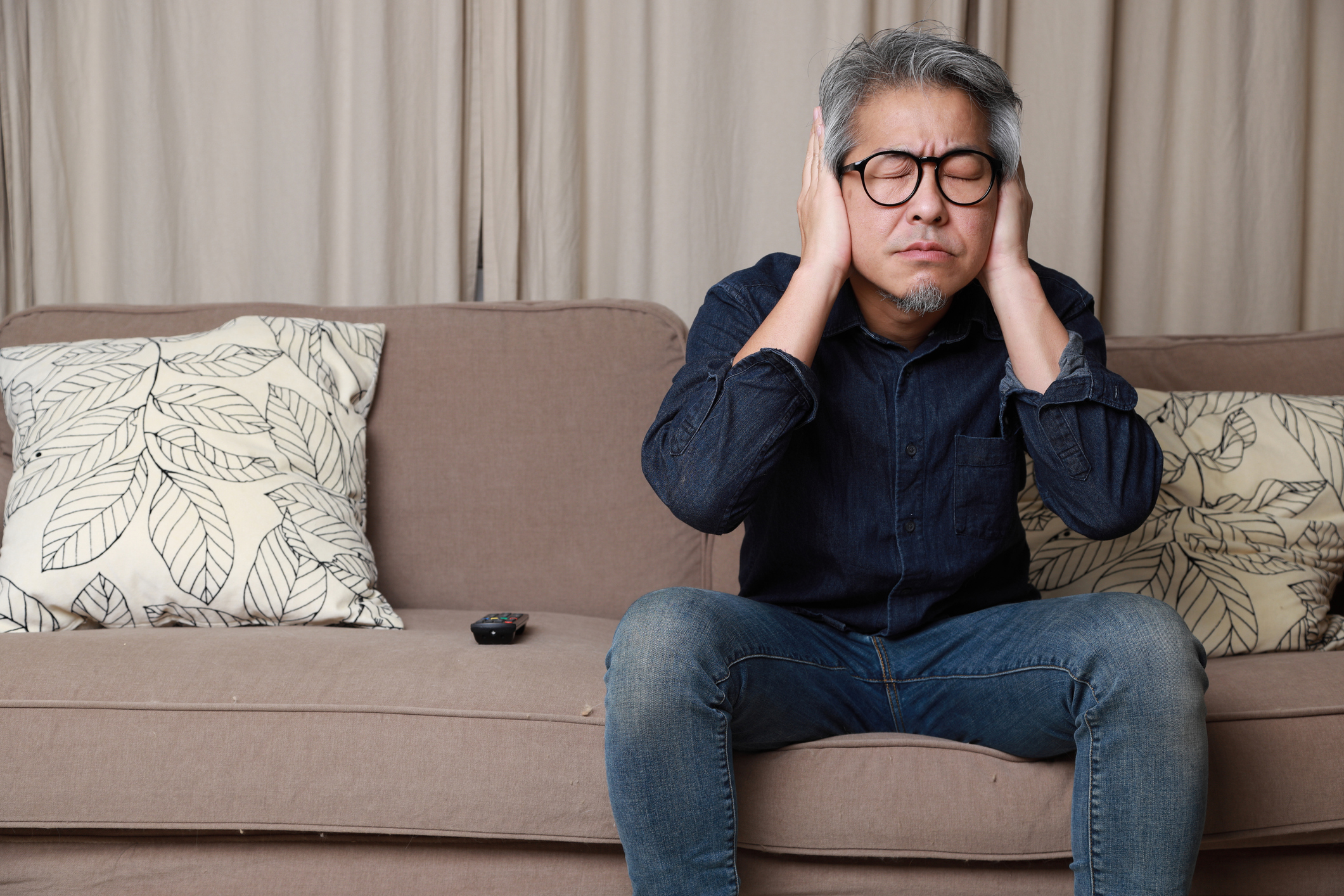Get Easy Health Digest™ in your inbox and don’t miss a thing when you subscribe today. Plus, get the free bonus report, Mother Nature’s Tips, Tricks and Remedies for Cholesterol, Blood Pressure & Blood Sugar as my way of saying welcome to the community!
Tinnitus: Helping the brain learn to filter sound again

Up to one in four people live with a ringing, whooshing, whistling or clicking in their ears that just won’t stop.
And for 20 million Americans, this condition known as tinnitus is not just irritating, frustrating and downright annoying, it is debilitatingly life-changing. It can affect everything from their hearing and mood to concentration and sleep, leading to extreme anxiety and depression.
Often people with the condition are told there’s nothing they can do about it.
And that’s why research and development into helping them continues…
What’s behind that infernal internal noise
Less is known about what causes tinnitus than about the risk factors associated with it.
According to Penn Medicine, tinnitus is sometimes a sign of high blood pressure, an allergy or even anemia. In very rare cases it has been associated with a tumor or aneurysm.
A few other risk factors for tinnitus may include:
- Temporomandibular joint disorders (TMJ)
- Diabetes
- Thyroid problems
- Obesity
- Head injury
Back in 2007, tinnitus was also linked to a nutritional deficiency…
In a pilot clinical trial on the effects of CoQ10 on chronic tinnitus, participants with low blood levels of CoQ10 supplemented 100 mg of CoQ10 three times a day for 16 weeks and saw a significant improvement in their tinnitus symptoms.
CoQ10 deficiencies can occur due to nutrient-poor food consumption, environmental stress, prescription medications (particularly statins)— and aging. CoQ10 levels drop significantly before age 40. Developing tinnitus is most common in people between the ages of 40 and 80.
The brain stops filtering some sounds
Cognitive behavioral therapy (CBT) involves sessions with a psychologist who can help a person manage their problems by changing the way they think and behave.
According to Professor Suzanne Purdy, Professor of Psychology at Waipapa Taumata Rau, University of Auckland, “Cognitive behavioral therapy is known to help people with tinnitus, but it requires a trained psychologist. That’s expensive, and often difficult to access.”
But that may have just changed with the advent of an app specifically designed to use CBT techniques to calm tinnitus symptoms.
The app works based on the reason tinnitus sounds are so irritating. Let’s break that down…
Even before birth, our brains learn to filter out certain sounds, ones that don’t pose a danger to us — like the sound of blood rushing past our ears.
As we get older, our brains have to step it up even further, blocking out things like traffic noises, the sound of the air conditioner humming away or a snoring spouse.
Basically, it goes to work by allowing only some noises through to trigger an alert, like the noise of a smoke detector going off. Obviously, these are noises it deems necessary to set off a fight-or-flight response that could save our lives.
Yet, for tinnitus sufferers, it’s an internal sound that doesn’t represent a risk in the environment. But the brain still responds by sending out an alert.
Once the noise is perceived and can’t be switched off, the brain then focuses in on it, locking into a feedback loop where it continues to pay more and more attention to it.
Retraining the brain to filter sound
According to the researchers who tested it, the app, known as MindEar, “… uses a combination of cognitive behavioral therapy, mindfulness and relaxation exercises as well as sound therapy to help you train your brain’s reaction so that we can tune out tinnitus. The sound you perceive fades in the background and is much less bothersome.”
And their study proved just how well it can work…
The research put MindEar to the test against tinnitus in 30 sufferers. Two-thirds of participants saw improvement after 16 weeks. And if they combined the use of MindEar with access to an online psychologist, they got results after just eight weeks.
“One of the most common misconceptions about tinnitus is that there is nothing you can do about it; that you just have to live with it. This is simply not true,” says lead researcher, Dr. Fabrice Bardy.
Editor’s note: There are perfectly safe and natural ways to decrease your risk of blood clots including the 25-cent vitamin, the nutrient that acts as a natural blood thinner and the powerful herb that helps clear plaque. To discover these and other secrets of long-lived hearts, click here for Hushed Up Natural Heart Cures and Common Misconceptions of Popular Heart Treatments!
Sources:
Train your brain to overcome tinnitus — EurekAlert!
A pilot clinical trial of the effects of coenzyme Q10 on chronic tinnitus aurium — Journal of Otolaryngology-Head and Neck Surgery














